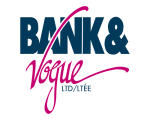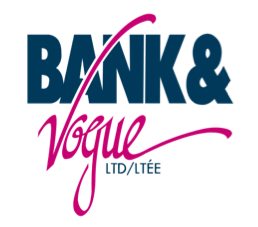Introduction
The wholesale secondhand goods industry is an ever-evolving market, driven by global demand for sustainable and affordable products. Suppliers play a crucial role in this supply chain, providing the raw materials that keep the industry thriving. This white paper offers valuable tips for suppliers in the wholesale secondhand goods industry, helping them optimize their operations, build strong partnerships, and achieve long-term success. In collaboration with industry leaders like Bank & Vogue, suppliers can better understand the market, improve their practices, and ensure ongoing profitability.
Understanding Market Demand
One of the key factors for success in the wholesale secondhand goods industry is understanding global market demand. Suppliers should stay informed about trends, customer preferences, and regional differences in demand. Collaborating with brokers like Bank & Vogue, who provide global market insights, can help suppliers adjust packaging, load weights, and pricing to meet market needs, thereby increasing the demand for their products.
Tip: Regularly engage with your buyers to gain insights into market trends. Bank & Vogue, for example, offers its sellers valuable insights that help tailor products to market demands, positioning them for higher sales.


Maximizing Revenue through Strategic Partnerships
A crucial aspect of succeeding in the wholesale secondhand goods industry is maximizing revenue by connecting products with the right buyers. Suppliers should seek to partner with buyers who are committed to helping them sell more goods, increase profits, and explore new market opportunities. Bank & Vogue, for instance, works closely with its sellers to identify potential customers who can best utilize their products, ensuring that each product reaches its optimal market.
Tip: Work with buyers who actively help you explore new markets and connect your products with the most suitable customers. This strategic approach can significantly enhance your revenue and market reach.
Effective Communication
Clear and consistent communication is vital for building strong relationships with buyers. Suppliers should establish regular communication channels with their buyers, ensuring they are informed at every stage of the transaction. Whether it’s confirming load details, discussing logistics, or addressing any concerns, timely communication helps prevent misunderstandings and builds trust.
Tip: Choose a communication medium that works best for both parties, whether it’s email, phone calls, or messaging apps. For instance, Bank & Vogue commits to regular and timely communication throughout every transaction, ensuring that their sellers are always aware of what’s happening.
Logistics and Packaging
Efficient logistics and proper packaging are critical components of the wholesale secondhand goods industry. Suppliers should work closely with logistics teams to ensure the smooth movement of goods across regions. Proper packaging not only protects the goods during transit but also helps in optimizing load weights and reducing transportation costs.
Tip: Familiarize yourself with the packaging requirements of your buyers. We work with suppliers to confirm packaging and load weights that best position products for sale, creating higher demand.
Financial Reliability
Timely payments are essential for maintaining a healthy cash flow and sustaining operations. Suppliers should establish clear credit terms with their buyers and ensure that payments are made on time. Financial reliability is crucial, especially for suppliers who operate local community programs or other important initiatives.
Tip: Work with buyers who prioritize timely payments. Bank & Vogue understands the importance of this and ensures that all payments are made on time according to agreed credit terms, helping sellers maintain their financial stability.
Building Strong Relationships
Successful suppliers are those who build strong, long-lasting relationships with their buyers. This requires a commitment to honesty, integrity, and transparency in all interactions. Flexibility and adaptability are also key traits, as the market for secondhand goods is constantly changing.
Tip: Be open to feedback and willing to adapt to market changes. Bank & Vogue values honesty, integrity, and flexibility in its sellers, recognizing that these traits lead to long-term, profitable partnerships.


Conclusion
The wholesale secondhand goods industry offers significant opportunities for suppliers who are willing to adapt to market demands and build strong, reliable partnerships with their buyers. By following these tips—understanding market demand, maximizing revenue through strategic partnerships, maintaining effective communication, optimizing logistics and packaging, ensuring financial reliability, building strong relationships, and offering diverse, high-quality products—suppliers can position themselves for long-term success in this dynamic industry.
For suppliers looking to grow their business and thrive in the wholesale second hand goods market, collaboration with industry leaders like Bank & Vogue is essential. Bank & Vogue’s commitment to helping sellers maximize their revenue, explore new markets, and connect with the right customers provides a solid foundation for success. Together, suppliers and buyers can create a sustainable, profitable future in the secondhand goods industry.








